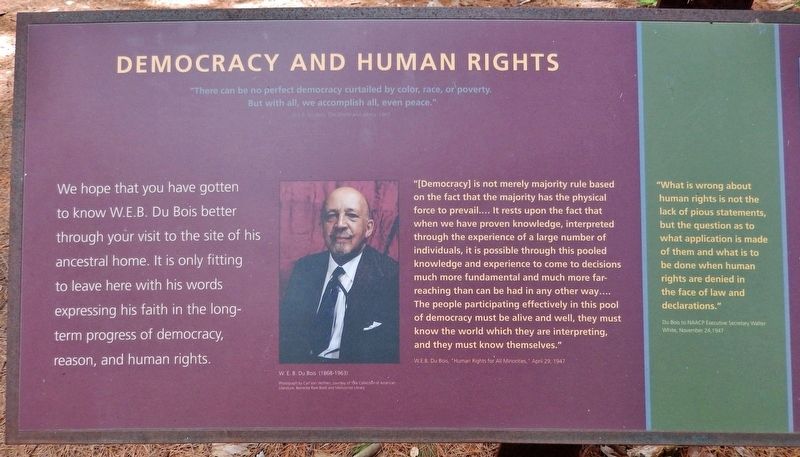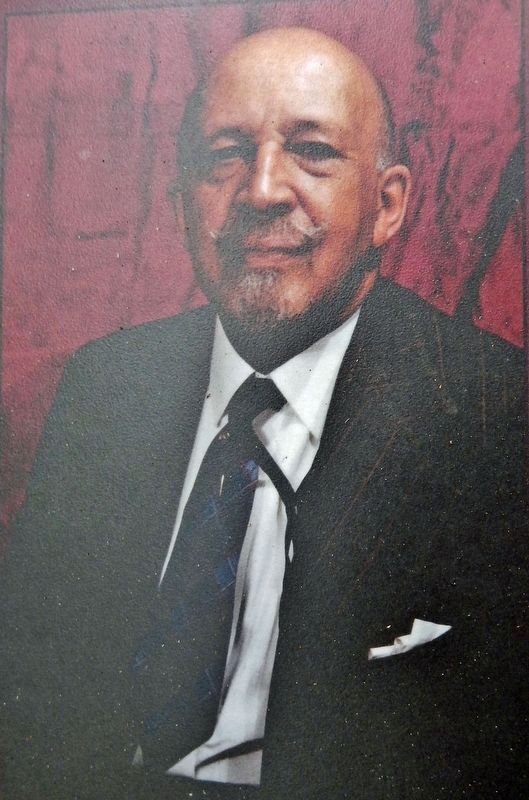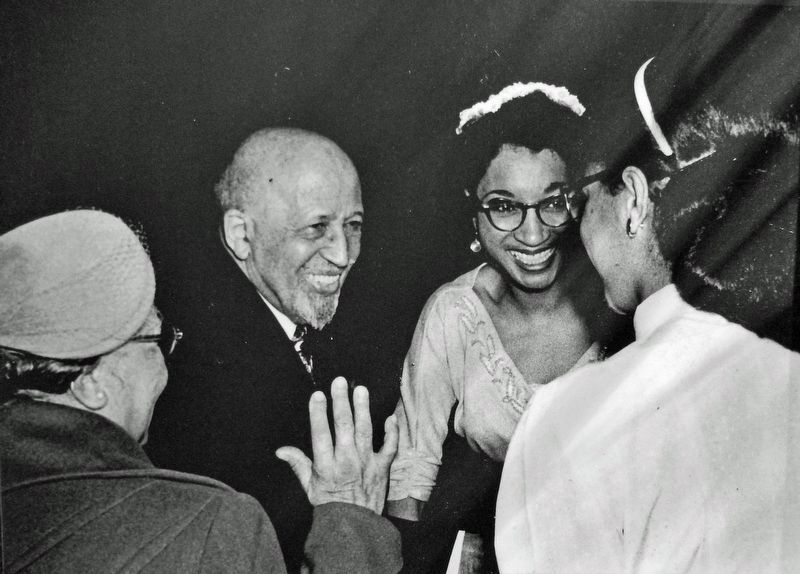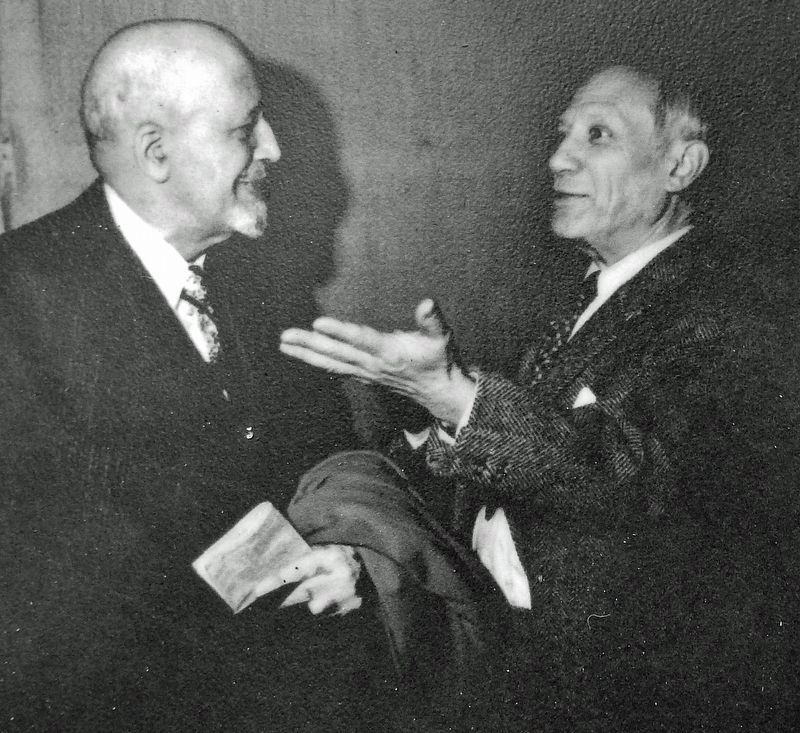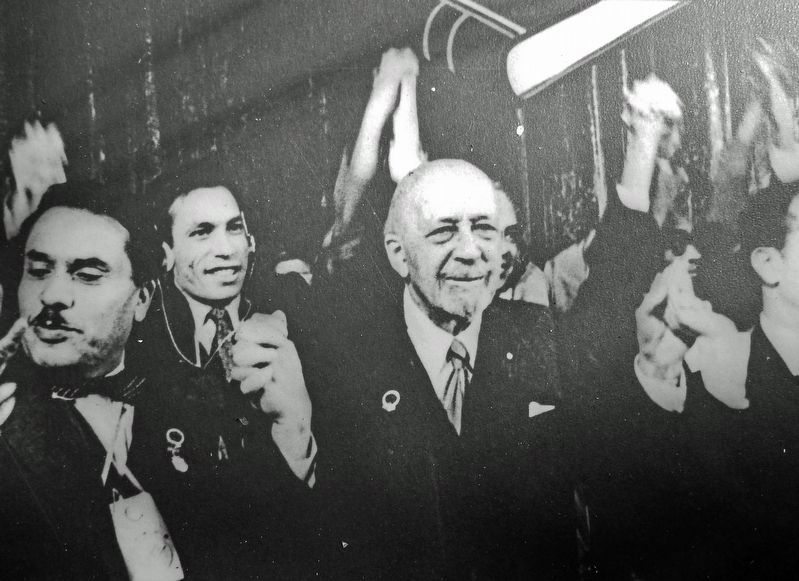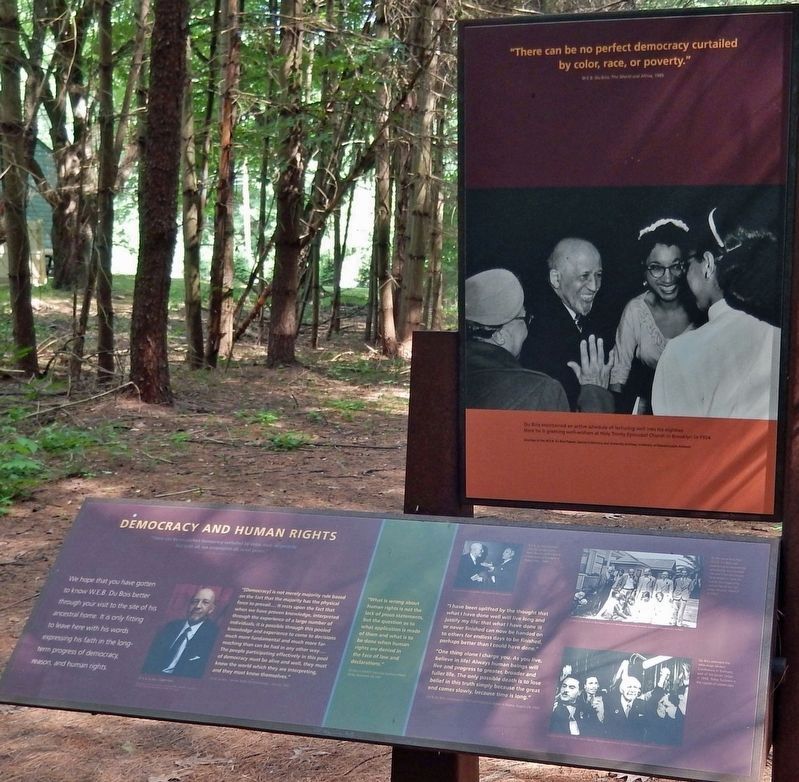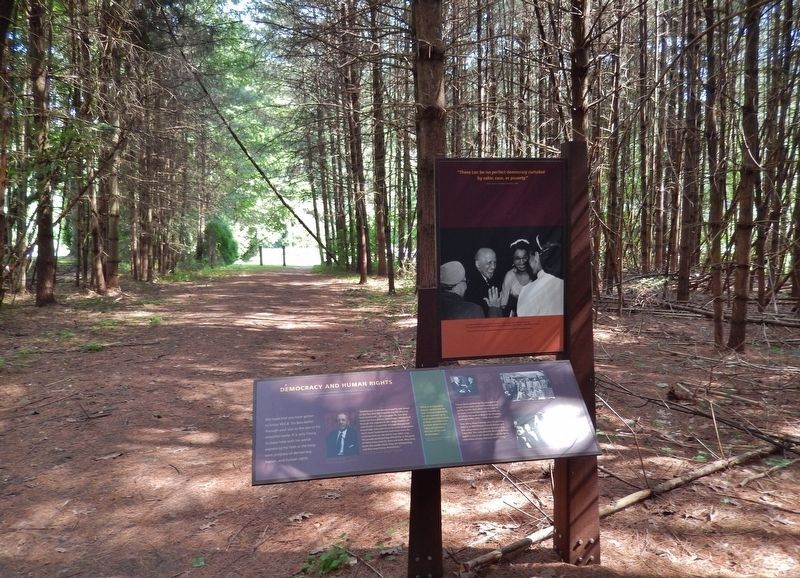Great Barrington in Berkshire County, Massachusetts — The American Northeast (New England)
Democracy and Human Rights
W.E.B. Du Bois National Historic Site
“There can be no perfect democracy curtailed by color, race, or poverty. But with all, we accomplish all, even peace.”
—W.E.B. Du Bois, The World and Africa, 1965
We hope that you have gotten to know W.E.B. Du Bois better through your visit to the site of his ancestral home. It is only fitting to leave here with his words expressing his faith in the long-term progress of democracy, reason, and human rights.
"[Democracy] is not merely majority rule based on the fact that the majority has the physical force to prevail.... It rests upon the fact that when we have proven knowledge, interpreted through the experience of a large number of individuals, it is possible through this pooled knowledge and experience to come to decisions much more fundamental and much more far-reaching than can be had in any other way.... The people participating effectively in this pool of democracy must be alive and well, they must know the world which they are interpreting, and they must know themselves."
—W.E.B. Du Bois, "Human Rights for All Minorities,” April 29, 1947
"What is wrong about human rights is not the lack of pious statements, but the question as to what application is made of them and what is to be done when human rights are denied in the face of law and declarations."
—Du Bois to NAACP Executive Secretary Walter White, November 24, 1947
"I have been uplifted by the thought that what I have done well will live long and justify my life: that what I have done ill or never finished can now be handed on to others for endless days to be finished, perhaps better than I could have done."
"One thing alone I charge you. As you live believe in life! Always human beings will live and progress to greater, broader and fuller life. The only possible death is to lose belief in this truth simply because the great end comes slowly, because time is long."
—W.E.B. Du Bois, composed in 1957 and read at his burial in Ghana, August 29, 1963
Topics. This historical marker is listed in these topic lists: African Americans • Civil Rights • Education • Peace.
Location. 42° 10.681′ N, 73° 23.617′ W. Marker is in Great Barrington, Massachusetts, in Berkshire County. Marker can be reached from South Egremont Road (Massachusetts Route 23/41) 0.1 miles south of Egremont Plain Road, on the right when traveling south. Marker is located along the W.E.B. Du Bois Boyhood Homesite interpretive trail. Touch for map. Marker is at or near this postal address: 612 South Egremont Road, Great Barrington MA 01230, United States of America. Touch for directions.
Other nearby markers. At least 8 other markers are within walking distance of this marker. A Tireless Explorer of Social Truths (a few steps from
this marker); W.E.B. Du Bois: Architect of the Modern Civil Rights Movement (within shouting distance of this marker); W.E.B. Du Bois Boyhood Homesite (within shouting distance of this marker); A Contribution that No Other Race Can Make (within shouting distance of this marker); Boulder Dedicated to the Legacy of W.E.B. Du Bois (about 300 feet away, measured in a direct line); Grass Roots Democracy (about 300 feet away); I Have A Sentimental Desire to Keep this Place (about 300 feet away); The House of the Black Burghardts (about 400 feet away). Touch for a list and map of all markers in Great Barrington.
Regarding Democracy and Human Rights. National Register of Historic Places #76000947.
Related markers. Click here for a list of markers that are related to this marker. W.E.B. Du Bois National Historic Site
Also see . . .
1. W.E.B. Du Bois.
Throughout his life Du Bois fought discrimination and racism. He made significant contributions to debates about race, politics, and history in the United States in the first half of the 20th century, primarily through his writing and impassioned speaking on race relations.(Submitted on April 3, 2022, by Cosmos Mariner of Cape Canaveral, Florida.)
2. W. E. B. Du Bois.
His 1940 autobiography Dusk of Dawn is regarded in part as one of the first scientific treatises in the field of American sociology, and he published two other life stories, all three containing essays on sociology, politics and history. In his role as editor of the NAACP's journal The Crisis, he published many influential pieces. Du Bois believed that capitalism was a primary cause of racism, and he was generally sympathetic to socialist causes throughout his life. He was an ardent peace activist and advocated nuclear disarmament. The United States Civil Rights Act, embodying many of the reforms for which Du Bois had campaigned his entire life, was enacted a year after his death.(Submitted on April 3, 2022, by Cosmos Mariner of Cape Canaveral, Florida.)
3. W.E.B. Du Bois National Historic Site. (Submitted on April 3, 2022, by Cosmos Mariner of Cape Canaveral, Florida.)
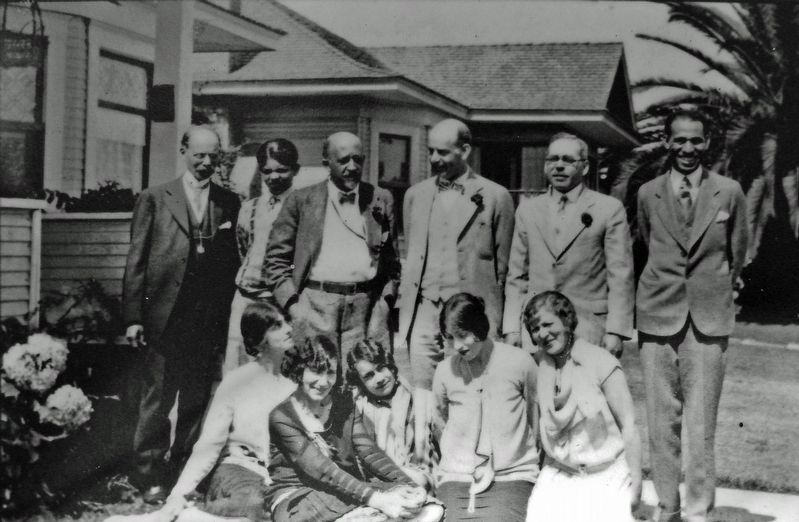
W.E.B. Du Bois Papers, Special Collections & University Archives, University of Mass. Amherst
5. Marker detail: Du Bois, San Diego Branch NAACP (1917)
At the same time that W.E.B. Du Bois was publishing his pioneering scholarship, he travelled the world for the causes he believed in. Here he is with the organizing committee of the San Diego Branch, NAACP, in 1917.
Credits. This page was last revised on April 1, 2023. It was originally submitted on April 2, 2022, by Cosmos Mariner of Cape Canaveral, Florida. This page has been viewed 124 times since then and 19 times this year. Photos: 1, 2, 3, 4, 5, 6, 7, 8. submitted on April 3, 2022, by Cosmos Mariner of Cape Canaveral, Florida.
